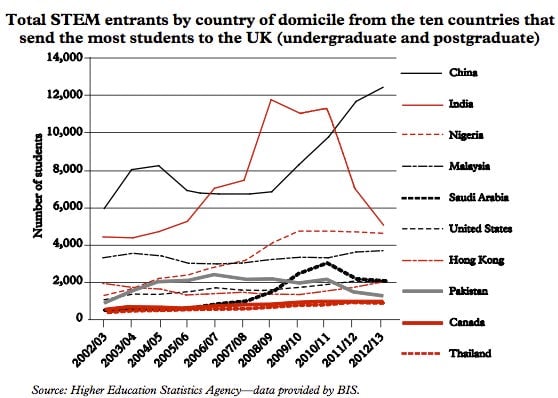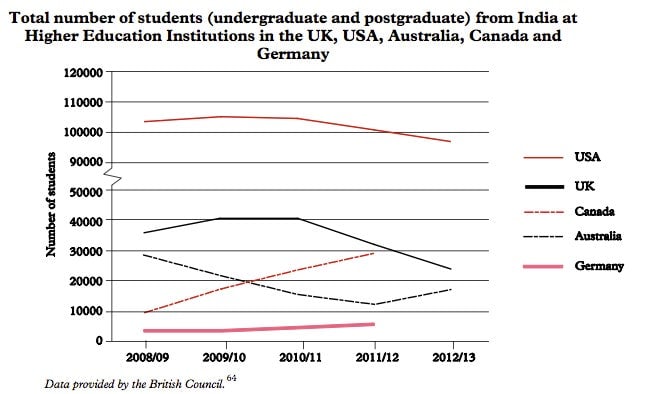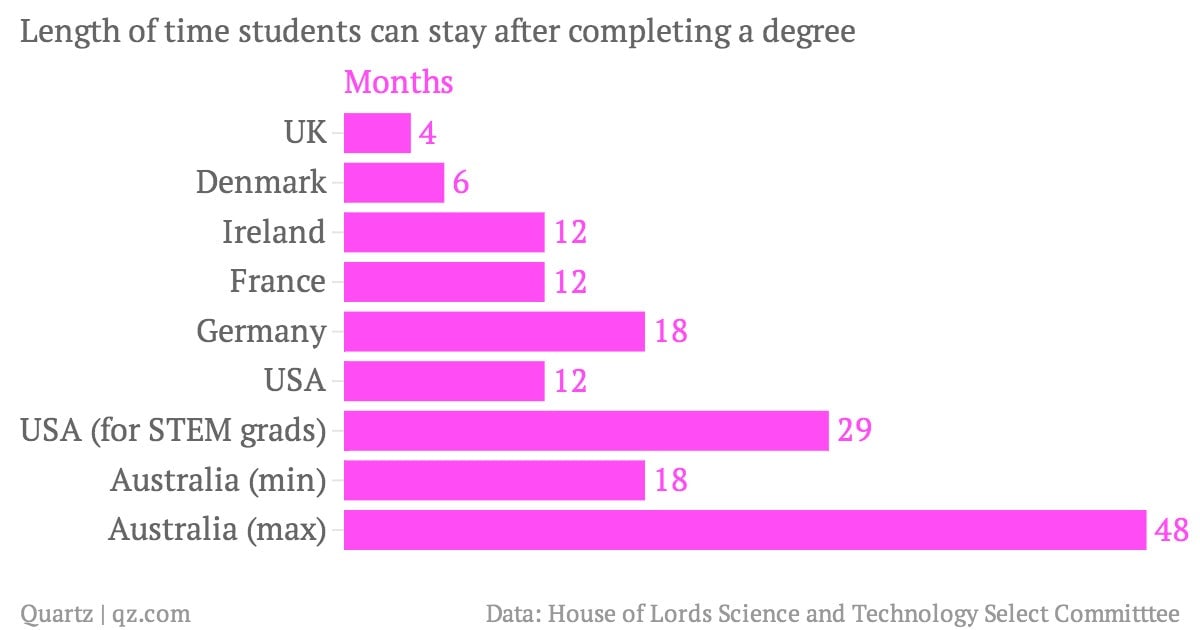Four ways Britain’s restrictive immigration policies are hurting its tech industry
Back in 2010, six months after David Cameron became prime minister of the United Kingdom, he gave a speech in London’s start-up district. He said was laying out policies to make Britain “the most attractive place in the world to start and invest in innovative technology companies”:


Back in 2010, six months after David Cameron became prime minister of the United Kingdom, he gave a speech in London’s start-up district. He said was laying out policies to make Britain “the most attractive place in the world to start and invest in innovative technology companies”:
If you’ve got an idea, if you want to create jobs, and if you have the ambition to build a world beating company here in the UK, we want you; we’ll make it easy for you; we’ll put out the red carpet for you. With our new Entrepreneur Visa we want the whole world to know that Britain wants to become the home of enterprise and the land of opportunity.
A few months later—almost exactly three years ago, in fact—Cameron’s government overhauled UK immigration policy, placing a cap on the number of immigrants from outside the EU.
Today (April 11), the House of Lords’ Science and Technology Select Committee released its report on how the change had affected foreign students studying the core subjects required for a tech economy—science, technology, engineering and mathematics (STEM).
The UK desperately needs engineers, for example, to help grow the economy. It is self-defeating to have a system in place which deters international STEM students from contributing to UK plc.
[T]he evidence we received in this inquiry suggested that changes to the immigration rules may well be deterring students from choosing to study in the UK… The UK’s offer to prospective international students remains a good one; it is founded on academic excellence, but it has been diminished by perceived and real barriers so that the overall offer is not as competitive as it needs to be.
Here’s what the cap has done to foreign STEM student numbers.
Foreign STEM enrollment is falling

“Between 2010/11 and 2011/12 the numbers of new international students taking postgraduate taught courses in STEM subjects fell by 13%. This was followed by a further fall of 3% in 2012/13. The number of new undergraduates enrolling on STEM courses fell by 5% and then 4% over the same two years.”
STEM enrollment from India is really falling

“In particular, there has been a collapse in the number of Indian STEM students choosing to come and study in the UK (down by 38% in 2011/12 and a further 28% in 2012/13)”
Indian STEM students are increasingly going elsewhere

“We heard from numerous sources that countries such as the USA, Australia, Canada, Singapore and Malaysia were increasingly competitive destinations for international students. We were also told about competition from other European countries, which now offer courses taught in English in addition to more attractive visas and in some cases financial incentives.”
STEM students who graduate in Britain can’t stay long

“We therefore recommend that the Government immediately reinstate the previous post study work route as it was simple, competitive and effectively enabled qualified STEM students access to the UK jobs market. If the Government do not agree with this recommendation they should explain why this is the case to Parliament and, within current arrangements, at least review the appropriateness of the £20,300 starting salary figure across all STEM disciplines and the length of time afforded to STEM graduates to seek work in the UK. The review should be completed by autumn 2014 and a report to Parliament published.”